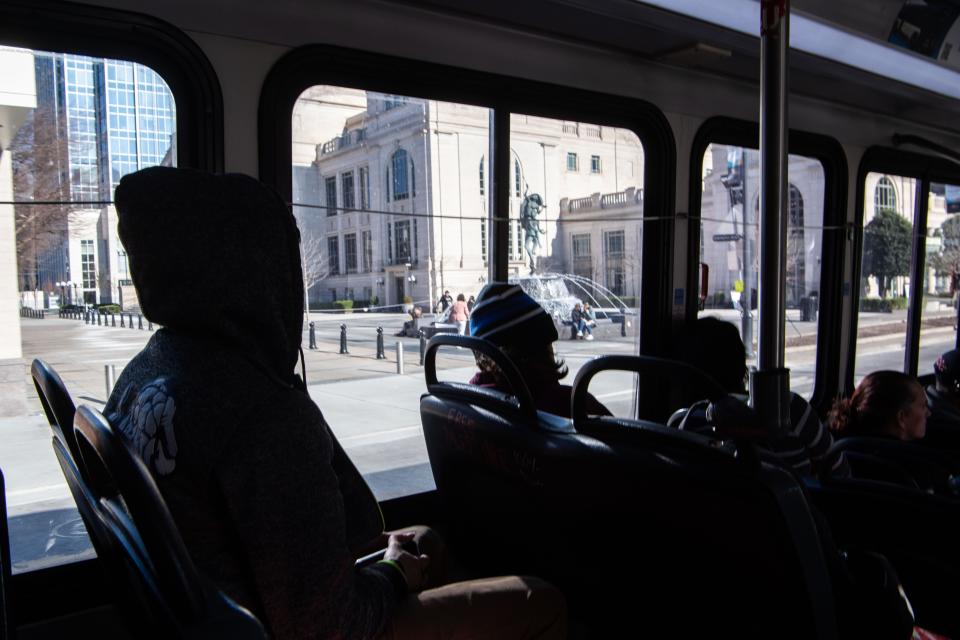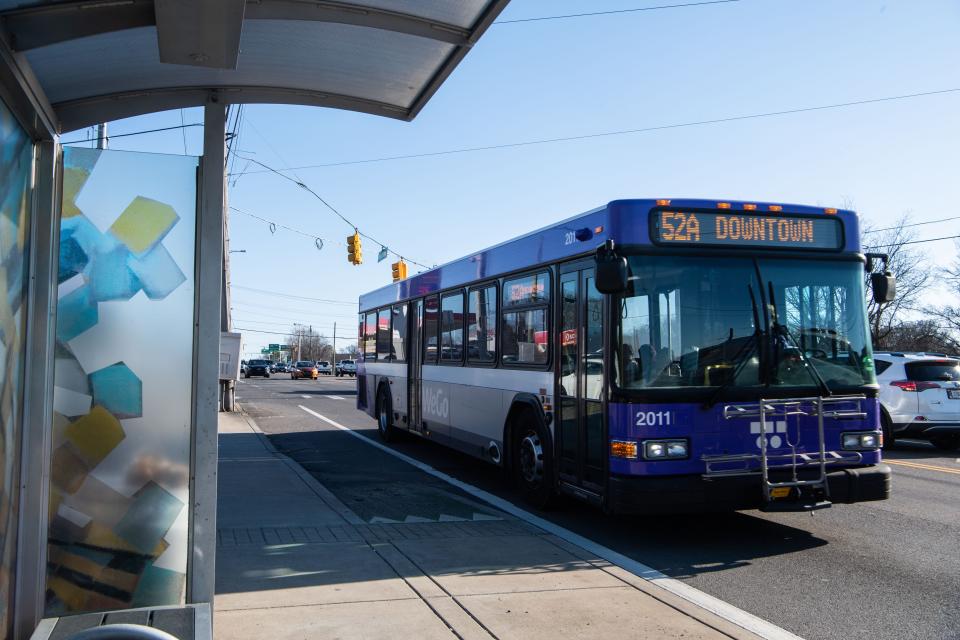How Nashville might pay for a transit overhaul, and what it means for your wallet
A vote on dedicated local transit funding is coming to Davidson County residents' ballots in November, and Nashville Mayor Freddie O'Connell's administration is so far considering just one funding source: a half-cent local sales tax raise.
The revenue garnered from that increase would fund a slate of transit projects with total costs expected to land in the billions. While the full transit improvement program and funding model are not yet finalized — Metro is aiming to deliver fully baked plans to the state comptroller in late March or early April — draft maps have revealed general features under consideration.
The proposed half-cent sales tax surcharge to fund the "Choose How You Move" program could support up to 86 miles of new sidewalks, 38 miles of dedicated bus rapid transit lanes concentrated on Nashville's pikes and upgrades to around 600 traffic signals countywide.
The goal, O'Connell said in a March meeting, is for the plan to be as fiscally prudent as possible.
"The overall profile we're looking at here is something that we think will have high impact and overall low cost, especially comparative to the 2018 plan," he said, referring to a referendum plan that failed at the ballot box.
It will be up to voters to decide if those transit improvements are worth the sales tax bump.
Transit goals and who foots the bill: Nashville mayor talks referendum issues
What a sales tax bump means for your wallet
Davidson County residents currently pay 6.25% sales tax on most groceries (except prepared foods, alcohol and tobacco, candy and dietary supplements) and 9.25% on everything else.
Raising the local sales tax 0.5% would bump that up to 6.75% for groceries and 9.75% for other taxable goods, bringing Nashville's sales tax to the same level as several surrounding counties.
For a single adult, that could mean paying an extra $4 per month in tax on groceries and other household goods, based on average household costs in Davidson County according to MIT's Living Wage Calculator. A family with two adults and two children could pay around $10 more per month in sales tax on those basics.
Why raise Davidson County's sales tax?
The Tennessee IMPROVE Act allows certain local governments (including Metro Nashville) to levy a surcharge on several local taxes to collect revenue to fund transit improvements. Those taxes include:
local option sales tax
business tax
motor vehicle tax
local rental car tax
tourist accommodation or hotel occupancy tax
residential development tax
Here's what to know: Nashville will get to vote on funding transit this year
Amanda Wall Vandegrift, a financial planning consultant working to develop Metro's transportation improvement program, said sales tax is the most commonly used to support transit in cities throughout the U.S. It's predictable, has a strong growth rate and has the highest revenue potential — up to 10 times higher than the other five surcharges available, she said.
While the financial plan is still being worked out, Wall Vandegrift said she reviewed the possibility of adding other surcharges in with a sales tax bump but determined it wasn't "worth the squeeze."
A dedicated sales tax surcharge would provide stable local matching funds for transit projects, allowing Nashville to apply for additional federal grant funding, she added.
Hotel occupancy tax is another potential source of significant revenue, but O'Connell and his administration have shied away from that option given that Metro approved a 1% hotel tax increase last year to help build a new Tennessee Titans stadium.
Weighing the costs of relying on sales tax
Sales tax is a regressive tax because of its higher proportional impact on lower income taxpayers.
Of the options for dedicated funding allowed under the IMPROVE Act, sales tax would raise the most revenue. "That's also its biggest downside," said Ron Shultis, director of policy at The Beacon Center, a think tank that opposed the 2018 referendum.
"While this provides the most dedicated funding to transit, ultimately you are still going to have to raise taxes on Nashvillians, and this is the highest tax you could raise," Shultis said. "I think that should be really thought out carefully and not just be taken lightly."

In a 2016 review of funding sources for public transportation in Middle Tennessee, the Canada-based Victoria Transport Policy Institute stated sales tax and property tax bring in significant revenue while distributing the burden more widely. Sales tax also applies to non-residents.
Todd Litman, the institute's founder and executive director, supported the 2018 referendum. Sales tax is regressive, but "a typical low-income household is far better off if there is a special sales tax that provides affordable transportation," he said.
A robust transit system could allow families to reduce the number of cars in their household, a savings of several thousand dollars a year, Litman said. "It's a huge, huge financial relief."
Wall Vandegrift said Nashville is in a "unique position" where upwards of 60% of the revenue from a 0.5% sales tax surcharge would come from tourists and commuters. In other cities, she said, it's more common to see that figure sit around 20%.
But while Nashvillians may receive more than they pay for in transit improvements, they're still bearing an additional cost.
"Regardless, every Nashvillian is going to be paying half a cent more for everything they purchase," Shultis said.
Why not consider property tax?
A property tax surcharge is not one of the dedicated revenue sources permitted by the IMPROVE Act. Because of this, Wall Vandegrift did not review property tax in the financial assessment for the referendum.
A property tax raise could be used to fund transit projects, but property tax dollars can be allocated differently each year, and different Metro Council and mayoral administrations can have different priorities. O'Connell said securing stable, dedicated funding for transit makes Nashville a more attractive grant applicant for federal, state and organizational funds.
Shultis said property tax is a favorite for some economists because it acts more like a "user fee" with property owners paying for infrastructure and services they use. But it also varies based on the housing market, so owners may pay more taxes over time for the same level of service. In Shultis' view, property taxes are best used to support basic infrastructure like water and sewer systems.

Shultis is withholding his opinion on the transit plan overall until it is finalized but said the details under consideration thus far show O'Connell has "at least been listening and is careful to distinguish this (referendum attempt) from the last iteration."
"I think there will be some that would want to approve anything and want it to go even bigger," Shultis said. "I think there are some that will say no to anything, and I think the vast majority of Nashvillians are going to think about ... the impact of that sales tax hike on their bottom line, and does this plan actually improve their quality of life, if not directly, at least indirectly for the city as a whole.
"I think voters are smart. They realize that big projects cost money, but what they're looking for is, is it worth it?"
This article originally appeared on Nashville Tennessean: How a sales tax bump for Nashville transit could impact your wallet

